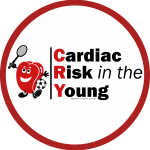What causes sudden death in young adults and children?
Sudden death in a young person can be caused by:
-
heart disease, including cardiomyopathy, congenital heart disease, myocarditis, genetic connective tissue disorders, mitral valve prolapse or conduction disease
-
medication-related causes, or
-
other causes.
We explain these below.
Heart disease
Heart disease is the most common cause of an unexpected sudden death in all age groups. In people aged 30 or over, the heart disease is usually due to ‘furring’ or ‘blockages’ of the blood vessels that supply the heart, i.e. coronary artery disease. But in younger people and in children the cause is much more often something other than coronary artery disease. The main causes are listed below. Some of these are inherited conditions. Some are detected easily while the person is alive, while others may go unnoticed until a tragic sudden death occurs.
Cardiomyopathies
These are abnormalities of the heart muscle and are usually inheritable.
-
Hypertrophic cardiomyopathy (HCM) The walls of the heart become abnormally thick without any other cause being identifiable. Even if there is not any thickening, the arrangement of the heart’s muscle cells (myocytes) are disorganised and disrupted.
-
Arrhythmogenic right ventricular cardiomyopathy (ARVC) This condition causes the heart’s muscle to become thin, because of an abnormal amount of fat and scar tissue in its wall. It affects mainly the right side of the heart.
-
Dilated cardiomyopathy (DCM) The left and right sides of the heart become enlarged and pump less efficiently, sometimes progressing to heart failure when the heart cannot meet the body’s requirements.
Congenital heart disease
This group includes abnormalities of the structure of the heart which have been present since birth. Some of them may be inherited conditions. They include:
-
Valvular and more complex disease Abnormality of the heart’s valves that can be associated with other abnormalities of the heart’s structures such as ‘a hole in the heart’ (for example, Fallot’s Tetralogy).
-
Anomalous coronary arteries When there is an abnormal arrangement of the arteries that supply blood to the heart muscle.
Myocarditis
Myocarditis is inflammation of the heart’s muscle. It is usually due to a viral infection although it can be a complication of other medical conditions or exposure to drugs. It is not inheritable.
Genetic connective tissue disease
These are inheritable conditions affecting the structures that give support, strength and elasticity to the walls of the major blood vessels and, to a lesser extent, the heart muscle – for example Marfan’s Syndrome and Ehler-Danlos. These can cause sudden death by arrhythmias or due to the sudden rupture of a major blood vessel such as the aorta (the major blood vessel that leaves the left side of the heart and supplies blood to the body).
Mitral valve prolapse
The mitral valve can sometimes be ‘floppy’ in appearance. This will show up on an echocardiogram (see cardiac tests). This is very common and affects around 1 or 2 in every 20 people. It is usually an asymptomatic and benign condition. In some rare cases, mitral valve prolapse can be inherited in a family and can then be associated with arrhythmias and sudden death.
Conduction disease
This includes abnormalities in the way that the electrical impulses are conducted through the AV node due to disease (for example as in myotonic dystrophy), or because there are additional or ‘accessory’ pathways as in Wolff-Parkinson-White (WPW) Syndrome.
Medication-related causes
Prescription, over-the-counter and illegal drugs can have potentially dangerous but usually rare side effects, particularly if too much is taken (an overdose). These effects include arrhythmias (disturbance in the heart’s rhythm) and sometimes a sudden death.
Other causes
Research suggests that sudden death may be caused infrequently by conditions such as fits (epilepsy) and severe asthma attacks. Pulmonary embolus (a clot to the lungs), has become better known recently due to its association with staying immobile for long periods during air travel. It can cause a sudden collapse and a rapid death (for more on this go to technical terms).
Sudden Arrhythmic Death Syndrome (SADS)
In around 1 in every 20 cases of sudden cardiac death – up to 500 every year in the UK – no cause can be found, despite examination of the heart by an expert cardiac pathologist. The cause of death is therefore described as ‘unascertainable’. This is called Sudden Arrhythmic Death Syndrome, or SADS.
In the causes of sads some of the conditions responsible for SADS are described.



